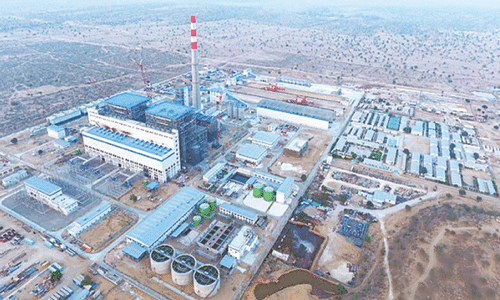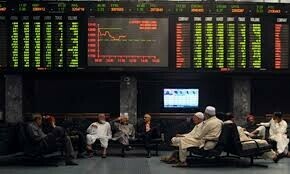KARACHI, Nov 14: On Wednesday, the Board of Directors of Sui Northern Gas Pipelines Limited (SNGPL) announced financial figures for the year ended June 30, 2001. The board also announced cash dividend at 17 per cent (Rs1.70 per share). Rumours were rife at the market that a cash dividend this time — after nine blank years — was in the offing. But most analysts and market punters were pushing forward the word that the payout would range between 5 and 15 per cent. The better-than-expected financial results and a robust cash dividend came as a pleasant surprise.
Cash payouts though a regular feature until 1992, nothing had been paid in cash perhaps for the last nine years. The company, however, continued to disburse bonus shares. Bonus capitalization in each of the last two years being at 15 per cent.
The financial results and dividend were received and announced at the Karachi Stock Exchange on Wednesday, nearly two hours after the close of normal trading, which means that the impact of the announcement should go to reflect on the stock on Thursday. After witnessing a volatile movement all through the week and climbing to Rs11.30, the share settled at Rs11.05 on Wednesday, which was 10 paisa down from the opening price of Rs11.15. The price of the 10-rupee share in the SNGPL had swayed between the high and low prices of Rs 25.60 and Rs 9.25 during calendar year 2000; the scrip marked its career best at Rs67.25 in 1994.
Annual general meeting (AGM) has been called on December 31, at Lahore. Share transfer books would close for 14 days from December 18 to December 31 (both days inclusive).
The SNGPL has paid-up capital of Rs5 billion, in 500 million shares of Rs10 each. Sixty per cent of the total stock in the company is held by the Government of Pakistan, while the balance 40 per cent represents free float.
Gas sales revenue at Rs56.6 billion for the year ended June 30, 2001 stood at over twice the Rs26.6 billion the year earlier. After deducting gas development surcharge of Rs2 billion, also twice the Rs1 billion last year, net sales amounted to Rs54.5 billion (2000: Rs25.6 billion). Analysts attribute the huge increase in revenue to two times tariff revision during the financial year and bigger volume.
But the company operates under a return formula, by which the government assures 17.5 per cent of operating assets as the earning before interest & tax (EBIT) to the SNGPL; thus, if sales revenue is not high enough to meet expenses and provide the assured return, the government injects funds under the gas development surcharge (GDS) head, and vice-versa. It means that up until the operating level, the profit for the utility would remain unchanged, irrespective of the revenue. After tax profit for the year under review amounted to Rs1.5 billion, up from Rs527 million the year ago; the benefit almost wholly due to the steep decline in financial charges to Rs1.4 billion, from Rs2.7 billion the earlier year. The company has been consistently reducing the financial charges over the last few years; in 1999, these amounted to Rs3.5 billion.
The SNGPL is understood to have expansion plans that would require around Rs16 billion in the next three year period. The bulk of investment, analysts say, would be in infrastructure to be laid out for supply of gas to the power sector.
Notably, the accounts have arrived on time this year; last year, they had been delayed by about three and a quarter months. The chairman’s review and directors’ report would have to be awaited to see how the company plans to finance the expansion plans.
Analysts are expecting the company to raise funds through debt/equity mix. Term Finance Certificates (TFCs) and a right call could be made. But given the enormous amount required for expansion, the liquidity crunch would likely remain until the expansion programme is completed. In case of a right issue, the number of outstanding shares in the company would be further increased, which would go to make cash dividends a consistent feature, all the more difficult.















































Dear visitor, the comments section is undergoing an overhaul and will return soon.